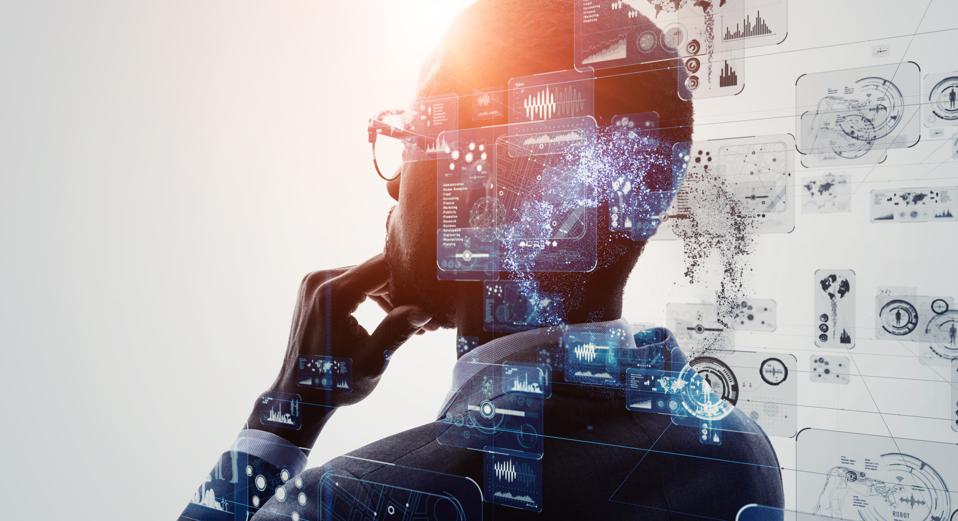AI, or artificial intelligence, seems to be on the tip of everyone’s tongue these days. While I’ve been aware of this major trend in tech development for a while, I’ve noticed AI appearing more and more as one of the most in-demand areas of expertise for job seekers.
Copyright by forbes.com
 I’m sure that for many of us, the term “AI” conjures up sci-fi fantasies or fear about robots taking over the world. The depictions of AI in the media have run the gamut, and while no one can predict exactly how it will evolve in the future, the current trends and developments paint a much different picture of how AI will become part of our lives.
I’m sure that for many of us, the term “AI” conjures up sci-fi fantasies or fear about robots taking over the world. The depictions of AI in the media have run the gamut, and while no one can predict exactly how it will evolve in the future, the current trends and developments paint a much different picture of how AI will become part of our lives.
In reality, AI is already at work all around us, impacting everything from our search results, to our online dating prospects, to the way we shop. Data shows that the use of AI in many sectors of business has grown by 270% over the last four years.
But what will AI mean for the future of work? As computers and technology have evolved, this has been one of the most pressing questions. As with many technological developments throughout history, the advancement of artificial intelligence has created fears that human workers will become obsolete.
The reality is probably a lot less dire, but maybe even more complicated.
What is AI?
Before we do a deep dive on the ways in which AI will impact the future of work, it’s important to start simple: what is AI? A straightforward definition from Britannica states that artificial intelligence is “the ability of a digital computer or computer-controlled robot to perform tasks commonly associated with intelligent beings.”
“AI” has become a catchall term to describe any advancements in computing, systems and technology in which computer programs can perform tasks or solve problems that require the kind of reason we associate with human intelligence, even learning from past processes.
Thank you for reading this post, don't forget to subscribe to our AI NAVIGATOR!
This ability to learn is a key component of AI. Algorithms, like the dreaded Facebook algorithm that replaced all our friends with sponsored content, are often associated with AI. But there is a key distinction.
As software journalist Kaya Ismail writes, an algorithm is simply a “set of instructions,” a formula for processing data. AI takes this to another level, and can be made up of a set of algorithms that have the capacity to change and rewrite themselves in response to the data inputted, hence displaying “intelligence.”
AI will probably not make human workers obsolete, at least not for a long time
To put some of your fears to bed: the robots are probably not coming for your jobs, at least not yet. […]
Read more: www.forbes.com


AI, or artificial intelligence, seems to be on the tip of everyone’s tongue these days. While I’ve been aware of this major trend in tech development for a while, I’ve noticed AI appearing more and more as one of the most in-demand areas of expertise for job seekers.
Copyright by forbes.com
In reality, AI is already at work all around us, impacting everything from our search results, to our online dating prospects, to the way we shop. Data shows that the use of AI in many sectors of business has grown by 270% over the last four years.
But what will AI mean for the future of work? As computers and technology have evolved, this has been one of the most pressing questions. As with many technological developments throughout history, the advancement of artificial intelligence has created fears that human workers will become obsolete.
The reality is probably a lot less dire, but maybe even more complicated.
What is AI?
Before we do a deep dive on the ways in which AI will impact the future of work, it’s important to start simple: what is AI? A straightforward definition from Britannica states that artificial intelligence is “the ability of a digital computer or computer-controlled robot to perform tasks commonly associated with intelligent beings.”
“AI” has become a catchall term to describe any advancements in computing, systems and technology in which computer programs can perform tasks or solve problems that require the kind of reason we associate with human intelligence, even learning from past processes.
Thank you for reading this post, don't forget to subscribe to our AI NAVIGATOR!
This ability to learn is a key component of AI. Algorithms, like the dreaded Facebook algorithm that replaced all our friends with sponsored content, are often associated with AI. But there is a key distinction.
As software journalist Kaya Ismail writes, an algorithm is simply a “set of instructions,” a formula for processing data. AI takes this to another level, and can be made up of a set of algorithms that have the capacity to change and rewrite themselves in response to the data inputted, hence displaying “intelligence.”
AI will probably not make human workers obsolete, at least not for a long time
To put some of your fears to bed: the robots are probably not coming for your jobs, at least not yet. […]
Read more: www.forbes.com
Share this: